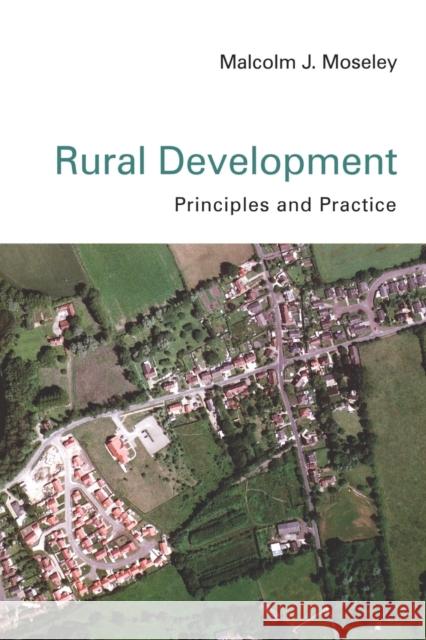Rural Development: Principles and Practice » książka
Rural Development: Principles and Practice
ISBN-13: 9780761947677 / Angielski / Miękka / 2003 / 240 str.
Rural Development: Principles and Practice
ISBN-13: 9780761947677 / Angielski / Miękka / 2003 / 240 str.
(netto: 296,70 VAT: 5%)
Najniższa cena z 30 dni: 282,09
ok. 22 dni roboczych.
Darmowa dostawa!
Malcolm Moseley makes an impressive job of "cutting through the cackle" and has produced a definitive catch-all volume to inform students, practitioners, community activists and local decision makers alike.... The book is transparently and logically laid out.... From a personal perspective as community activist and local authority member, I found the book invaluable. Here were satisfying definitions of terms I have grappled with for years - "rural," "community," "sustainable," "social capital," "capacity building," "the leaky bucket." Here also were some outstanding examples of good practice... In sum, this is a rural community development painting by numbers in the hands of an old master, well worth around 20 of investment' - The Rural Digest Advocating the fundamental need for an innovative and holistic approach to rural development, Rural Development: Principles and Practice demonstrates and explains, whilst seeking to improve, the mechanisms for planning, managing and financing rural development at the local level. This book is structured in terms of the key concepts of this field: sustainability, innovation, adding value, entrepreneurship, community, social inclusion, accessibility, partnership, community involvement, diagnosis, strategic planning, implementation and evaluation. Each is then placed into a practical context by two illustrative case studies related to development in rural Europe, the initiatives of which the author was either personally involved in or had personal knowledge. The first director of ACRE (the national voluntary organisation committed to promoting the vitality of England's villages and small towns and to improving the quality of life of their disadvantaged residents), Malcolm Moseley is a researcher, teacher and consultant in the European Union's LEADER Rural Development Programme' and the Countryside and Community Research Unit of the University of Gloucestershire. The author draws from this wealth of personal experience with the aim of providing activists, practitioners and specialists, as well as students, a concise and operational text which links the theory and practice of undertaking locally focused rural development. As such, Rural Development: Principles and Practice is essential reading for all interested or actively involved in local rural development issues.











